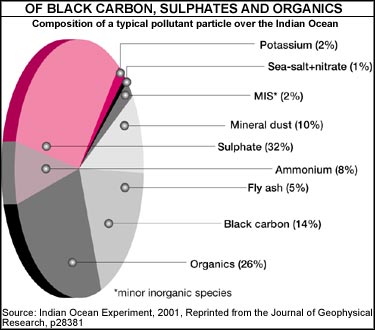To save the planet, first save elephants
Wiping out all of Africa’s elephants could accelerate Earth’s climate crisis by allowing 7% more damaging greenhouse gases into the atmosphere, scientists say. But conserving forest elephants may reverse
Wiping out all of Africa’s elephants could accelerate Earth’s climate crisis by allowing 7% more damaging greenhouse gases into the atmosphere, scientists say. But conserving forest elephants may reverse
A LABORATORY set up by the Tata Institute of Fundamental Research deep in the Kolar gold field mines to study proton decay may be wound up because poor gold yields have forced closure of the mines.

the 94th edition of the Indian Science Congress, held January 2-7, 2007 at Annamalai University in Chidambaram, Tamil Nadu, sought to be different. Revolving around the theme of "Planet Earth', it
Scientists at the University of California, Irvine, have made the world's smallest battery -- about the size of the common-cold virus (Science, Vol 257 No 5074). Chemist Reginald Penner and his
Scientists are thrilled by the discovery that fungal enzymes called chitinases are environment friendly fungicides.

SCIENTISTS have found in the foothills of the Andes mountains the remains of what they contend is the earliest dinosaur. Unlike its giant descendants, the discovery by a US-Argentinian team
A team of Russian scientists have found in mice a gene, which, unlike others, decides when to express itself
AS THE global warming debate heats up, scientists are looking towards the most unlikely source for clues -- penguins. They suspect the availability of fish on which penguins feed is increasing in the

Remember how Hansel and Gretel followed a trail of bread crumbs back home? Australian scientists have engineered an industrial robot that spits out camphor, which it can later detect and follow. The

A furore over the ethics of the new eugenics reproduction technologies that could create 'designer' babies has the medical community worldwide in a fix.

Forget health impacts, tiny particles floating in the air are altering regional climates and affecting monsoon patterns and agricultural yield. These particles could be emanating from diesel and industrial emissions, biomass burning for cooking, forest fi